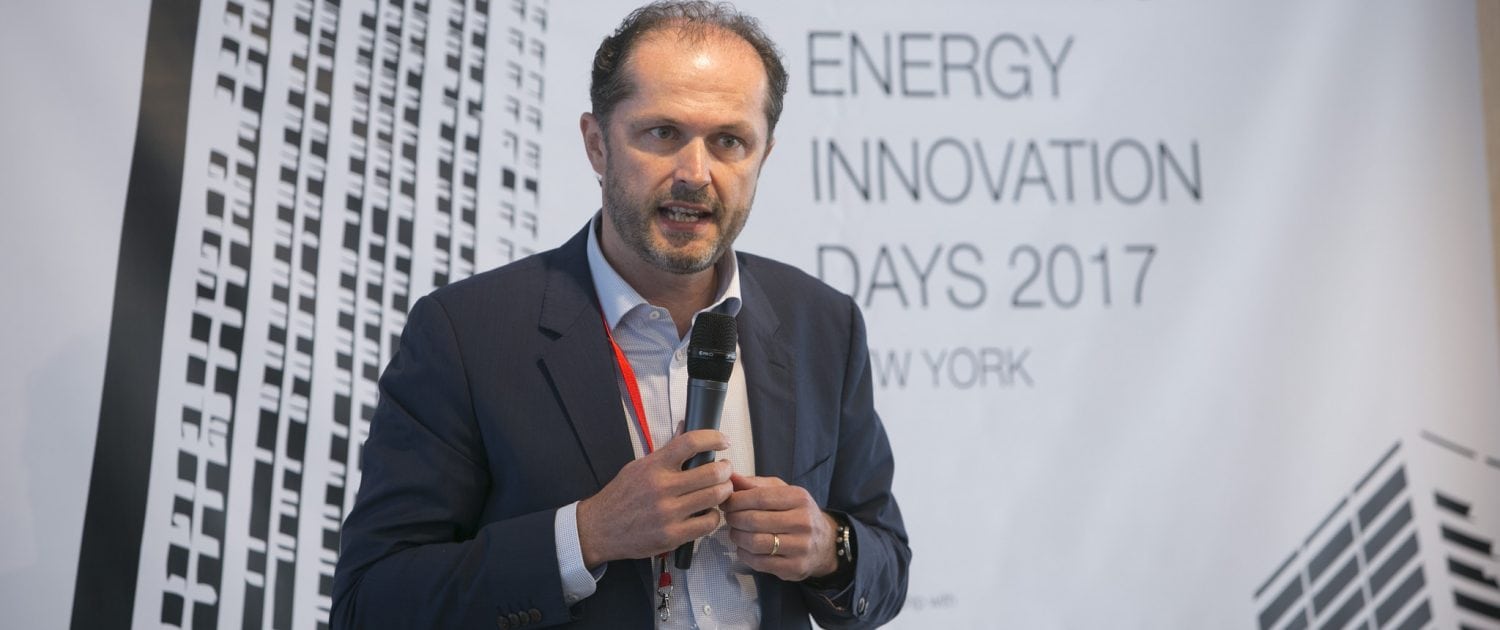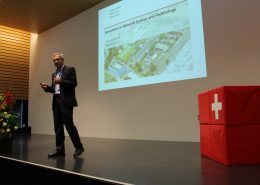On August 23, 2017, the Swiss Touch initiative joined forces with the Swiss-US Energy Innovation Days for a panel discussion titled „Views on the energy future by US and Swiss thought leaders“. As part of the three-day conference dedicated to exploring the rapidly evolving energy world, the initiative fostered a round-table discussion on the energy future, bringing together energy policy leaders from across the Atlantic to the Swiss Touch Table.
The opening speech was presented by Steve Cohen of the Earth Institute and set the tone for a fruitful and riveting discussion. Energy is embedded in every aspect of our lives, Cohen argues, and technological progress is both necessary and possible in order to meet our energy challenges such as decarbonizing the electricity mix.
A call for creativity and innovation and the need to reduce global dependency on oil guided the discussion as the diverse perspectives proposed different approaches. Deron Lovaas with extensive experience in advocacy for energy efficiency stressed the importance of supportive and congruent city and state level climate policy, while also noting the accomplishments that individuals and grassroots organizations have achieved for a greener environment.
Anne Korin, co-author of „Turning Oil into Sand“ explained how our dependency on energy is engrained into geopolitical affairs. Energy is a pillar of geopolitics and lies at the core of modern security issues such as nuclear proliferation, funding of terrorist activities, and conflict over resources. In particular, oil’s monopoly on transportation option results in instability and security concerns. Furthermore, she argues that the same economic and political factors that determine the strategic importance of oil have the potential to become incentives for innovation and for the diffusion of alternative fuels, which would in turn lead to a more stable energy future.
Switzerland recently passed its Energy Strategy 2050 through a popular vote, and Benoît Revaz, Director of the Swiss Office of Energy, discussed how Switzerland has taken steps towards improving its energy efficiency. This measure enables the phase out nuclear energy, to reduce Switzerland’s dependency on oil and gas, and to decrease the need of energy imports. Another important aspect of the Energy Strategy is to increase the share of renewables and to reduce the emissions from the transport and construction sectors. Patrick Dümmler expanded on this issue by promoting the use of market based energy policies (such as emission taxation), which foster innovation and consequently reduce greenhouse gas emissions.
The Consulate General of Switzerland in New York
The text and the video were first published here: http://swisscgny.tumblr.com/post/165314351763/swiss-touch-presents-sueid#notes

 Wie Digitalisierung und Hurrikans die Energiewelt der USA verändern
Wie Digitalisierung und Hurrikans die Energiewelt der USA verändern  BFEVon Reden für den Direktor, Bürgerschreiben und Kopfwehtabletten
BFEVon Reden für den Direktor, Bürgerschreiben und Kopfwehtabletten  Was man alles sagen könnte
Was man alles sagen könnte  Successful and highly exciting second day at the Swiss-US Energy Innovation Days 2015
Successful and highly exciting second day at the Swiss-US Energy Innovation Days 2015 

 Philipp Böni
Philipp Böni
Dein Kommentar
An Diskussion beteiligen?Hinterlassen Sie uns Ihren Kommentar!